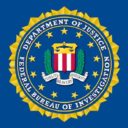

Syed Farook, 28, and Tashfeen Malik, 27, the suspects responsible for the San Bernardino Islamic terror attack. (Photos: AP/EPA)
Apple (NASDAQ:AAPL) CEO Tim Cook said the company will fight a federal judge’s order to help the Federal Bureau of Investigation (FBI) get into an iPhone belonging to one of the radical Islamic terrorists responsible for the San Bernardino terror attack last December.
In a statement released early Wednesday, Cook said that even though the company has “no sympathy for terrorists,” what the federal government has asked from them does not exist and is “too dangerous to create.”
“The United States government has demanded that Apple take an unprecedented step which threatens the security of our customers. We oppose this order, which has implications far beyond the legal case at hand,” Cook said in the statement. “We have great respect for the professionals at the FBI, and we believe their intentions are good. Up to this point, we have done everything that is both within our power and within the law to help them. But now the U.S. government has asked us for something we simply do not have, and something we consider too dangerous to create.”
The FBI essentially has asked Apple to build a backdoor to the iPhone in order to bypass a security protocol that may or may not have been disabled. When a user attempts 10 times incorrectly to access the iPhone, it disables and locks the user out.
“Specifically, the FBI wants us to make a new version of the iPhone operating system, circumventing several important security features, and install it on an iPhone recovered during the investigation,” Cook explained. “In the wrong hands, this software — which does not exist today — would have the potential to unlock any iPhone in someone’s physical possession.”
The ruling Tuesday tied the problem to the deadliest terrorist attack on U.S. soil since the 2001 attacks on the World Trade Center and the Pentagon. Syed Farook and his wife, Tashfeen Malik, killed 14 people in a Dec. 2 shooting at a holiday luncheon for Farook’s co-workers. The couple later died in a gun battle with police.
Cook said the company sees a two-fold problem: The threat to data security and settings a dangerous precedent.
Cook on Data Security:
In today’s digital world, the “key” to an encrypted system is a piece of information that unlocks the data, and it is only as secure as the protections around it. Once the information is known, or a way to bypass the code is revealed, the encryption can be defeated by anyone with that knowledge.”
Cook on Precedent:
Rather than asking for legislative action through Congress, the FBI is proposing an unprecedented use of the All Writs Act of 1789 to justify an expansion of its authority. The implications of the government’s demands are chilling. If the government can use the All Writs Act to make it easier to unlock your iPhone, it would have the power to reach into anyone’s device to capture their data. The government could extend this breach of privacy and demand that Apple build surveillance software to intercept your messages, access your health records or financial data, track your location, or even access your phone’s microphone or camera without your knowledge.







Allain Troyanovsky / February 17, 2016
as if they haven’t already all kind of software on my phone, with the names its impossible to tell from viruses
/